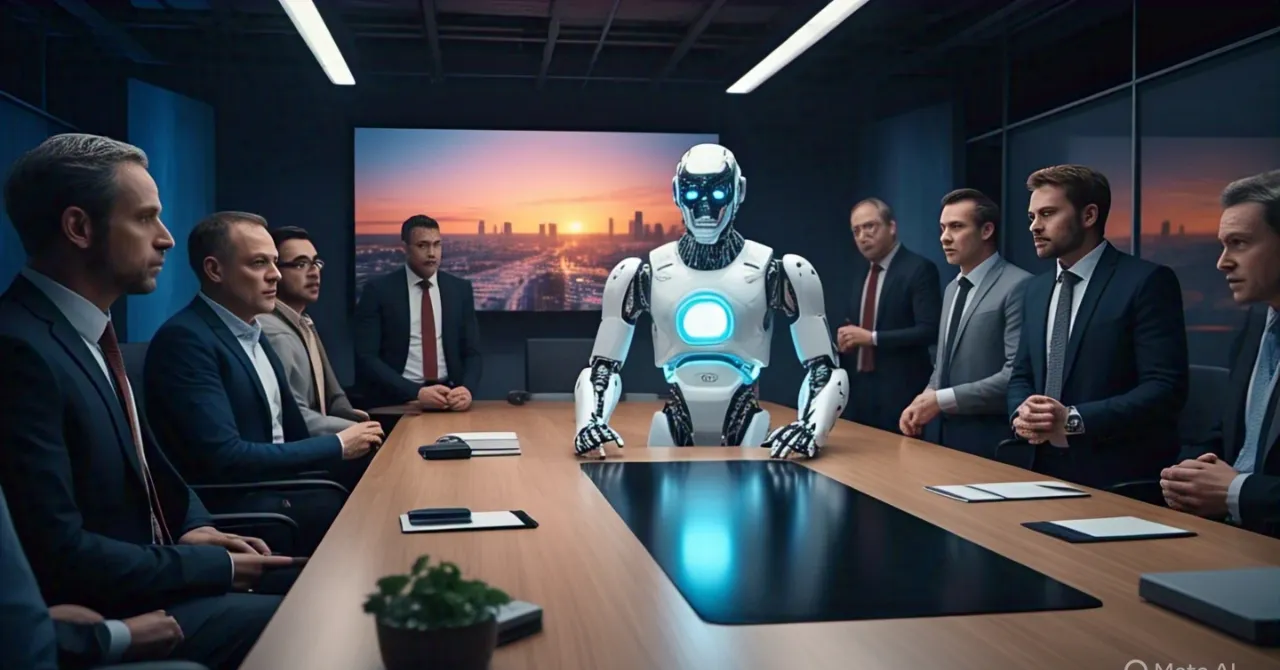
The role of Chief Executives and their C-suite counterparts is profoundly transformed, driven by the rapid advancements in Artificial Intelligence, particularly Generative AI (GenAI).
Traditionally, strategic decisions relied heavily on historical data analysis, market research, and the collective experience and intuition of leadership teams. While these remain valuable, GenAI introduces a new dimension – the ability to generate novel insights, simulate potential outcomes, and identify previously unseen patterns within vast datasets. This shift is empowering CxOs to move beyond reactive problem-solving towards proactive strategy formulation.
One of the most significant ways CxOs are leveraging GenAI is in scenario planning and risk assessment. By feeding GenAI models with diverse data points – from economic indicators and geopolitical events to competitor activities and internal performance metrics – leaders can generate a multitude of potential future scenarios.
This allows them to stress-test their strategies against various possibilities, identify potential risks and opportunities, and develop robust contingency plans. Imagine a Chief Financial Officer using GenAI to simulate the impact of interest rate hikes on the company’s profitability under different market conditions, enabling them to proactively adjust investment strategies and mitigate potential losses.
GenAI is proving invaluable in market analysis and identifying white spaces. CxOs can utilize these tools to analyze complex market trends, understand evolving customer needs, and pinpoint unmet demands. By generating novel product or service concepts based on these insights, GenAI can help organizations identify and capitalize on emerging opportunities before their competitors. A Chief Marketing Officer, for instance, could use GenAI to analyze social media trends and customer reviews to identify unmet needs in a specific product category, leading to the development of innovative offerings that capture new market segments.
Competitive intelligence is another area where Generative-AI is providing a significant edge. By analyzing publicly available data, financial reports, patents, and even news articles, GenAI can generate comprehensive profiles of competitors, identify their strategic moves, and predict their potential future actions. This allows CxOs to anticipate competitive threats and formulate proactive strategies to maintain or gain market share. A Chief Strategy Officer might employ GenAI to analyze a competitor’s recent investments and product launches to anticipate their next strategic direction and adjust the company’s own roadmap accordingly.
Beyond external analysis, GenAI is enhancing internal decision-making processes. By analyzing internal data such as sales figures, operational metrics, and employee feedback, GenAI can identify areas for improvement, optimize resource allocation, and even predict potential bottlenecks. This data-driven approach empowers CxOs to make more informed decisions about operational efficiency and organizational structure. A Chief Operating Officer could use GenAI to analyze production data and identify inefficiencies in the supply chain, leading to optimized processes and reduced costs.
GenAI is not just transforming operations; it’s reshaping how leadership envisions strategy.” — Nikhil Prabhakar, CIO, IndiaMART
It is assisting CxOs in communication and stakeholder engagement. These tools can generate compelling narratives, presentations, and reports based on complex data analysis, making it easier for leaders to communicate their vision and strategies to internal and external stakeholders. This can be particularly useful in investor relations, where clear and data-backed communication is crucial for building trust and securing funding. A CEO might leverage GenAI to create a compelling investor presentation that clearly articulates the company’s strategic direction and growth potential based on AI-driven market insights.
However, the integration of GenAI into strategic decision-making is not without its challenges. CxOs need to be mindful of data privacy and security concerns, ensure the ethical use of AI, and develop robust governance frameworks to oversee its deployment. Furthermore, the “black box” nature of some GenAI models requires leaders to develop a critical understanding of the underlying logic and potential biases to ensure the reliability and trustworthiness of the generated insights
From data-driven to GenAI-augmented decisions
In the past, decision-making at the C-level heavily relied on structured data analytics: BI tools, CRM dashboards, financial projections. While powerful, these tools often required significant human interpretation to extract actionable insights.
Now, GenAI models are trained on vast internal and external datasets — from customer feedback to market signals — and can synthesize information in ways that mimic human reasoning. Instead of simply asking “what happened,” CxOs can now ask “what could happen next” and “what’s the smartest course of action?”
At IndiaMART InterMESH Limited, the integration of AI into decision-making is already reshaping how strategies are crafted.
“At IndiaMART, AI is not just integral to our current operations but vital for strategic foresight,” said Nikhil Prabhakar, Chief Information Officer, IndiaMART.
“Our extensive history of utilizing AI for discovery, matchmaking, and conversational commerce positions us well to leverage it for future possibilities. This includes reading customer behaviour and preferences on the platform, thereby helping managers to make the platform more personalized, intuitive, and responsive as per the specific needs of the user.”
Prabhakar added that AI’s role extends to predicting shifts in buyer and supplier behavior, simulating the impact of new initiatives, and uncovering untapped opportunities.
Similarly, at Mastercard, GenAI is becoming indispensable to securing the financial ecosystem and enhancing operational foresight.
“At Mastercard, we see GenAI as a powerful enabler—augmenting rather than replacing human decision-making,” said Rajesh Chopra, Senior Vice President and Head, Advisors, South Asia.
“GenAI helps us unlock data-driven insights, model complex scenarios, and simulate outcomes faster than ever before. While strategic visioning and values remain inherently human, GenAI enhances the ability to act with precision and foresight.”
Online Coverage: Dataquest

